With the successful conclusion of the PDP National Convention on Saturday, October 30, 2021, credit must be given to leaders and members of the party for being able to manage the process and elect a new leadership for the party. Those who are not members of the party should urge the newly elected PDP leaders to build on the new atmosphere to start a new beginning for the party based on honesty, respect for one another and above all recognising that politics is all about negotiations and agreement. Every negotiation should produce agreement based on majority decisions. Of course, people are free to disagree with decisions of the majority. But such disagreements should respect the rights of the majority to direct how parties, society and nation should be governed. When disagreement turn to rebellion, it is either that those who disagree are not democrats, or they lack the capacity to negotiate and through negotiations win support of majority, or they are very desperate to have their says and ways in dictating how organisations and wider Nigerian society should be governed. It may also be a combination of all the above.
Ordinarily, the successful conclusion of the PDP National Convention should only be celebrated by PDP members. However, given the important role the party has played in orienting politics in Nigeria for 16 years between 1999 and 2015, during which Nigerian politics was made to be opposed to negotiations, it is important to acknowledge that the October 30 PDP National Convention is about the first time, since 1999 perhaps, that there is some semblance of negotiations to produce leaders of the party. Whether in the end, the new leaders will be allowed by the power blocs within the PDP to facilitate negotiations, is completely a different matter. By the way, the fact that the party can elect a young person, below 30 years as National Youth Leader means that PDP leaders have recognised that the old culture of arrogance and impunity must be avoided if they are to win the support of Nigerians, which is very positive. This is itself a confirmation that once processes are managed democratically; the right results would be achieved.
Join our WhatsApp ChannelEvery Nigerian should wish PDP, its leaders and party members well. Nigerians should hope that PDP leaders will build on the successes of the National Convention to re-orient their politics based on honesty and respect for one another. Being honest should be about taking responsibility. From all indications, PDP leaders have only moderated themselves and submitted to processes of internal negotiations up to the National Convention because they are out of power at Federal level. It can be predicted that had PDP been the ruling party in the country, the approach would have been different. Probably, as was the case with all previous PDP leaders, new leaders would have emerged without any negotiation and the National Convention would have been reduced to window dressing ritual, legitimising the instructions of a serving PDP President. Perhaps, everything leading to the PDP National Convention happened because there is no serving PDP President acting as the leader of the party. Good enough, being out of power, PDP leaders had to respect democratic process, which raises the hope of especially PDP members that the party is being reformed.
The worrisome issue is that notwithstanding some of the departures from the old abrasive PDP, just as Nigerians would want to wish PDP well, it must be pointed out that many of the speeches of PDP leaders at the Convention demonstrated lack of commitment to take responsibility. This is largely because, as far as PDP leaders are concerned all the problems facing Nigeria today is the creation of APC. Almost all the speeches of PDP leaders during the Convention were about winning election in 2023 and returning to power. Sadly, there is no indication, at any point during the Convention, showing how the party intend to solve Nigeria’s challenges. Not even a reference by any PDP leader during the Convention to any provision of the party’s manifesto, which must have gathered dust in the cabinet of INEC. Perhaps, apart from the few founding members of the party, almost all the delegates to the National Convention have never seen the manifesto of the PDP.
Recalling that the PDP, in November 2015, through Chief Raymond Dokpesi, then acting as the Chairman of the National Planning Committee for its then National Conference, admitted that it was ‘aware of the errors of the past 16 years, as human beings, we must have made mistakes and we could not meet the expectations of Nigerians, for that we tender an unreserved apology.’ Being honest is about taking responsibility. What were the errors and in what ways has PDP failed to meet expectations of Nigerians? Above all, how does PDP intend to govern Nigeria differently, if Nigerians are to elect them back to power? As much as it is rational for PDP leaders to campaign against the APC and its leaders, being a party that acknowledges its mistakes in 2015, PDP leaders should understand that mobilising Nigerians to vote them should take its bearing from how they want to govern the country differently from the way they did between 1999 and 2015. Anything short of that will be dishonest.
May be the last leader of PDP who was honest and was able to take responsibility was late President Umaru Musa Yar’Adua. This is because after acknowledging that the election that brought him to power in 2007 was fraudulent, he set up the Justice Mohammed Uwais Election Reform Committee, which laid the foundation for the reform of INEC. In addition, after more than six years of denial by the PDP controlled Federal Government of former President Olusegun Obasanjo that Nigerian army wasn’t responsible for the massacre of innocent citizens in Zaki-Biam, Benue State, which took place on October 20 – 24, 2001, in November 2007, late President Yar’Adua visited Benue State and personally apologised. Had the killing of 19 soldiers in Zaki-Biam of October 12, 2001, taken place during the present PDP administration of Governor Samuel Ortom, which led to the retaliation by the Nigerian military resulting in the massacre of innocent villagers, Fulani’s, and President Buhari would have been accused by Benue State Government as those responsible for both the killing of 19 soldiers and the massacre of innocent people of Zaki-Biam.
Without doubt, there are certainly leaders in PDP who are honest. The worrisome issue is that such leaders are few and face a lot of frustrations, which partly explains the exodus of many courageous political leaders out of the party. Instead of recognising this reality, the mainstream PDP leaders are in denial, which is why the party continue to delude itself with the belief that it can mobilise Nigerians to elect them back to power by simply claiming that all the problems facing the country is a creation of the APC. Unfortunately, somehow, the APC Caretaker and Extraordinary Convention Planning Committee led by His Excellency Mai Mala Buni has allowed someone like Mr. Femi Fani-Kayode, who is among the dishonest category of PDP leaders to cross-over from the PDP to APC without any initiative to reform him (Mr. Fani-Kayode).
Liberal disposition of APC, combined with in the inability of some of the appointees of APC led Federal Government to manage issues of communication based on strategy of contracting partnership with Nigerians in responding to national challenges, allowed false misleading narrative of failure against APC government and President Buhari to dominate public debate. Consequently, some of the PDP leaders had the audacity to shamelessly accuse APC of being corrupt while addressing delegates during the National Convention at a time when the country is passing through the shock that some of the recovered ‘properties’ from a former Minister of Petroleum under former President Goodluck Jonathan (2009 – 2015), Mrs. Diezani Alison-Madueke include under wears (bras and pants), estimated at $12.5 million, more than N6 billion.
If the value of under wears bought with looted resources of the Federal Government by a PDP political appointee is more than N6 billion ($12.5 million), it can only be imagined how much Mrs. Diezani alone has stolen. This is not to talk of the $2.1 billion funds for the procurement of arms to fight insurgency diverted by Col. Sambo Dasuki, former National Security Adviser under former President Jonathan, which was allegedly used to fund PDP campaigns for 2015 elections. In fact, the new PDP National Chairman, Dr. Iyorchia Ayu is alleged to have collected N345 million out of the diverted $2.1 billion. Other mindboggling disclosures of corruption during the sixteen years of PDP such as cases of subsidy payments fraud, Police Pension Task Force racket, Halliburton, Malabo scandals, etc. are still fresh in the minds of Nigerians.
It may be necessary to also request the newly elected leadership of PDP under Dr. Iyorchia Ayu to perhaps investigate the management of funds mobilised for the construction of the 12-storey PDP National Secretariat located on Muhammadu Buhari Way, Central Business District, Abuja, which is now abandoned as a demonstration of commitment to rescue Nigeria. Having mobilised close to N30 billion and expended over N16 billion, a born-again PDP leadership committed to rescuing Nigeria should be able to fix its internal problems first. Like it is often said, charity begins at home. A party that is committed to rescuing Nigeria should first and foremost rescue itself from its internal adversaries.
PDP leaders must always remember the saying in law, he who comes to equity must come with clean hands. Having presided over the affairs of Nigeria for sixteen years between 1999 and 2015, what were the specific achievements of the PDP? How many times for instance was the contract for Second Niger Bridge awarded before 2015? How much was disbursed? And what was the level of work done before 2015? These questions can also be asked in respect of Lagos – Ibadan Road project and many other abandoned projects, which were inherited by the APC government of President Buhari. Today, the Second Niger Bridge is more than 50% completed with guaranteed funding and scheduled to be commissioned in 2022. So far, progress has been made by APC led government of President Buhari on abandoned or stalled projects that were inherited, like the Loko-Oweto Bridge, Lagos-Ibadan Expressway, Sagamu-Benin Expressway, the Enugu-Port Harcourt Expressway, Onitsha-Enugu Expressway, Kano-Maiduguri Expressway, Abuja-Kaduna-Zaria-Kano Expressway, Obajana-Kabba Road, Ilorin-Jebba Road, Apapa-Oshodi-Oworonshoki Road, and several others are in progress, with some already close to completion.
There are over 900 active road contracts, covering the construction, reconstruction or rehabilitation of more than 13,000km of Federal roads and highways across the country. In addition, the Federal Executive Council meeting of Wednesday, October 27, 2021, approved another set of road projects covering 1,804.6 kilometres across the country, estimated to cost N621.2 billion to be executed by the NNPC. Outside road projects, the railways have returned. Acknowledging that both the 168km Abuja-Kaduna Rail and the 42.5km Abuja Light Rail commissioned by President Buhari in 2016 and 2018 respectively were inherited from the PDP, the 156km Lagos-Ibadan Standard Gauge Rail, the first double-track Standard Gauge Rail project in West Africa was started and completed by APC led government of President Buhari and has been commissioned. In addition, the 327km Itakpe-Warri Standard Gauge Rail, was completed by President Buhari’s administration 33 years after construction began. This means all the different administrations of PDP between 1999 and 2015 met the project and left it uncompleted but APC government of President Buhari completed it. Other Rail projects commissioned by President Buhari include Ibadan – Kano, Port Harcourt – Maiduguri, Port Harcourt – Calabar and Kano – Maradi standard gauge lines, all with guaranteed funding.
Once the attitude of PDP leaders is to mobilise Nigerians without acknowledging this reality, it means nothing has changed in PDP. It should therefore be expected that PDP campaigns for 2023 will be oriented to mislead Nigerians into voting them into power. To achieve that every problem of the country will continue to be politicised and leaders of PDP such as Governor Ortom would continue to propagate hatred against APC and President Buhari based on so-called ‘fulanisation’ and ‘islamisation’ agenda. This is a variant of ultra-right-wing politics campaign, which is neo-fascist and neo-Nazist, which is being gradually adopted by PDP. Once PDP allowed its politics to oriented based on ultra-right-wing politics, its capacity to regulate the conduct of its elected leaders will be further weakened.
Part of the disturbing reality is that there are leaders in APC who unfortunately are also fascinated by politics of ethnic hatred, partly because it has become a way demonstrating their disappointment. While, unlike in the case of PDP, those APC leaders and supporters attracted to politics of ethnic hatred may be angry because they are unable to access elective and appointive opportunities in government, especially at Federal levels, to the extent that there are APC leaders and supporters who accuse APC and President Muhammadu Buhari’s of ‘imposition of Fulani hegemony on Nigerians,’ is indicative of the vulnerability of APC to ultra-right-wing politics. There are many leaders of the APC, who on account of not being appointed into any position in government are angry with President Buhari. On the other hand, there are also supporters of Comrade Adams Oshiomhole led NWC who are unable to reconcile themselves with the decision of APC NEC of June 25, 2020 to dissolve the NWC. All these create some unhealthy internal dynamics within the APC, which contribute to weakening the capacity of the party to appropriately respond and correct all the false narratives against the APC and President Buhari.
A major issue, which should unite all Nigerians irrespective of ethnic, religious, political and all other differences, is the issue of insecurity in the country. Recognising that the issue of insecurity remained a major national challenge, it is important that efforts to critically engage government to address the challenges should not be politicised. Where the government get it right, it should be acknowledged. Given that APC administration is taking steps to equip the security agencies and build morale, promote community-led solutions, develop new security infrastructure and operations across land and maritime environments, and address the underlying drivers of insecurity (poverty and youth unemployment), require some acknowledgement especially given that under 16 years of PDP, these were never the case. No doubt, serious challenges still exist, but acknowledging victories and successes recorded in fighting insecurity is a critical indicator of the commitment of any political party towards addressing all the challenges of insecurity facing Nigeria.
Therefore, commitment of political parties towards strengthening the current security structure in the country through radical reforms should not be subject of speculation. Issues of amending the laws to enable state governments establish state police for instance, should clearly be outlined in the party’s manifesto and other campaign documents. To the extent that none of this feature in the PDP Convention is indicative of PDP’s lack of commitment to change its approach to politics. If anything, PDP is only interested in getting back to power to continue its extravagant governance style, which convert public treasury to private accounts of elected and appointed leaders. In other words, because PDP failed to address all these issues at the October 30 National Convention, the party and its leaders lost a golden opportunity to demonstrate to Nigerians that they are indeed a reformed party capable of resolving the problems of the country, which they have either created or were unable to effectively address during their 16 years rule between 1999 and 2015.
This reality presents a good opportunity for APC and its leaders to demonstrate readiness to continue to manage the affairs of the country. Being a party founded through negotiations, more than anytime, the commitment of leaders and members of the party to negotiate the support of Nigerians is being called to question once more. Capacity of APC leaders and members to honestly respond to national challenges is being contested. Ability to apply knowledge to effectively mobilise Nigerians to endorse or support initiatives of APC and its government towards resolving national security challenges, is now being handled very defensively. Coordination among many leaders of the party in making public statements is weak. To a large extent, this account for the illogical and defensive approach by some senior officials of the Federal Government to attempt to argue that bandits operating in the North-West are not terrorist. With proper coordination in communicating initiatives of government, the explanation of the Minister of Defence, Maj. Gen. (Rtd) Bashir Magashi to the effect that the procedure to declare bandits as terrorists is yet to be completed would have guided all official communications on the matter.
As APC prepare for its National Convention, issues of the unity of the country and responses to national security challenges should be priorities. Just like election of leaders, how APC want to continue with the task of responding to challenges of insecurity should be part of the agenda of the APC National Convention based on which a decision is taken at the Convention by way of adopting an amendment to the party’s manifesto through majority votes by delegates. Once that is done, it will assist the APC, its leaders and especially candidates for 2023 elections to mobilise Nigerians to vote the party. At the same time, it will potentially prepare the party to be capable of neutralising PDP’s toxic politics of promoting hatred with the high probability that it can produce ultra-right-wing candidates for 2023 elections.
As much as it should be recognised that PDP was able to open itself to negotiation leading to the emergence of new leadership, to the extent that it failed to take advantage of the National Convention to simulate some internal negotiation within the party about how challenges facing the country should be responded to by a PDP government suggest absence of any commitment to work for a new Nigeria. May be as part of the efforts by the new PDP leadership to start a new beginning, they will initiate new processes of negotiating these issues. If that is to be the case, it will be necessary that the new PDP leaders take their bearing by taking responsibility in terms of honestly accepting their errors when they had the opportunity to rule Nigeria between 1999 and 2015. Anything short of that will expose the PDP and its leaders as being dishonest.
APC must therefore use its National Convention to demonstrate its commitment to change Nigeria. Apart from electing leaders, the manifesto of the party should be subjected to amendment debate. As part of the commitment to change Nigerian politics, APC must unambiguously commit itself to the unity of Nigeria based on governance initiatives founded on the principles of fairness and equitable access to resources and opportunities by all Nigerians from every part of the country. In addition, APC must commit itself to developing the productive potentials of every Nigerian and every part of the country. The issue of national development must be oriented based on clear strategies to develop the economy of every part of the country. Issues of industrialisation, human capital development through correspondingly aggressively high public and private investment in education and health sectors of the country must be prioritised. This should mean that commitment of political leaders to issues of development planning must be strengthened, and the Nigeria public service must be appropriately reformed and rebuilt to manage initiatives for national development.
This position does not represent the view of any APC Governor or the Progressive Governors Forum

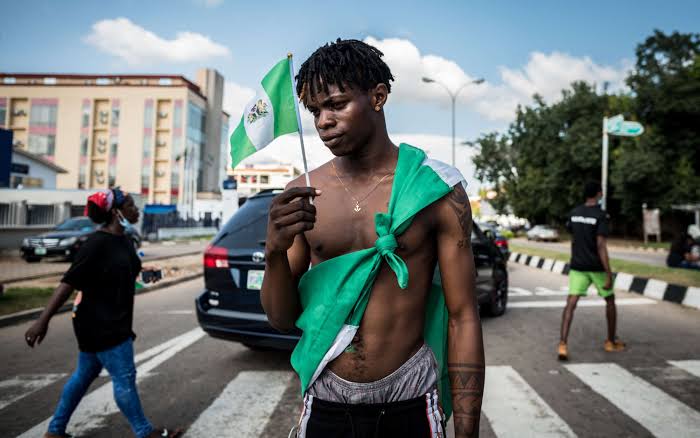


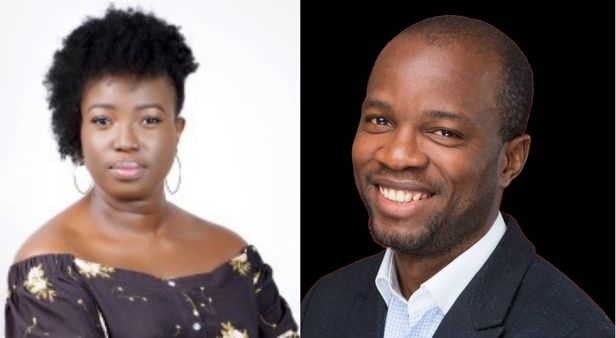
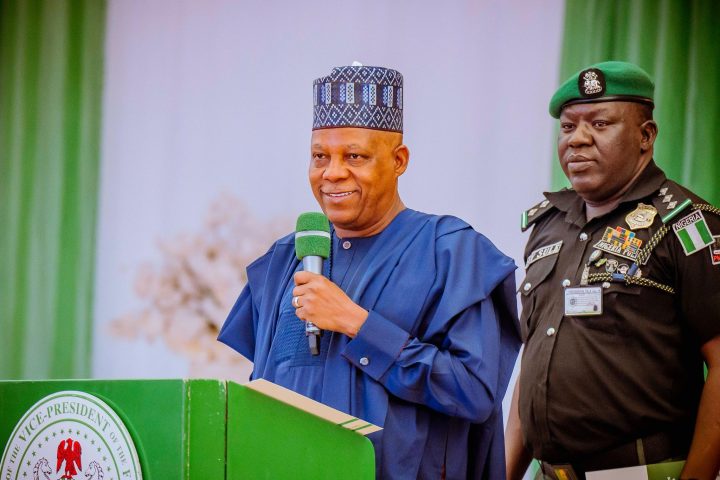









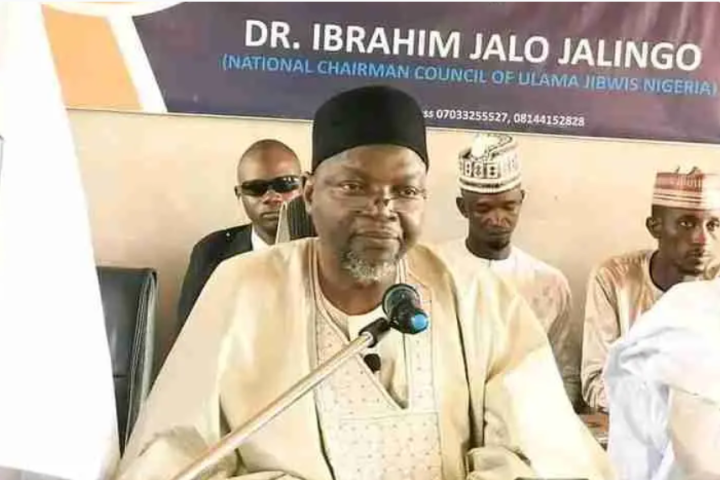
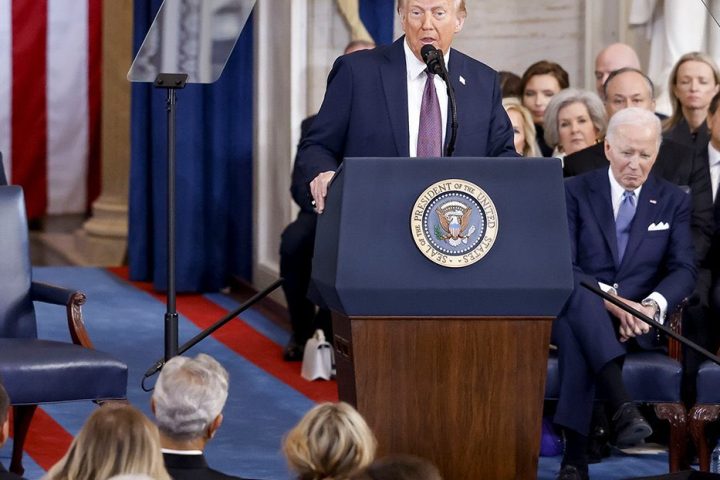
Follow Us